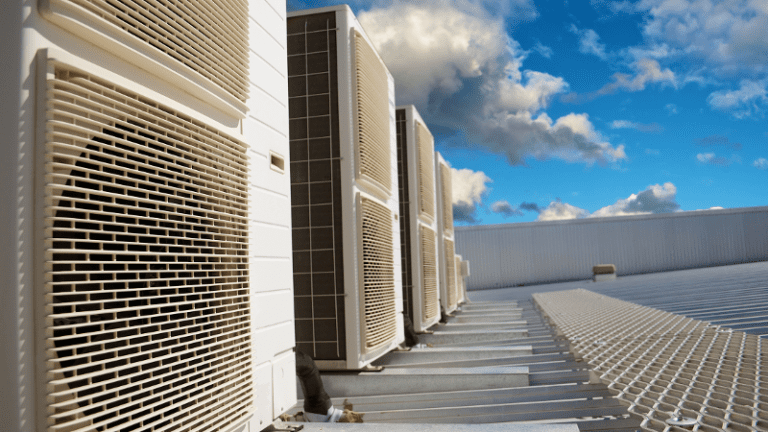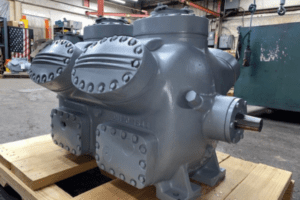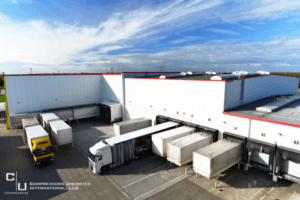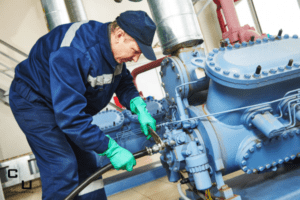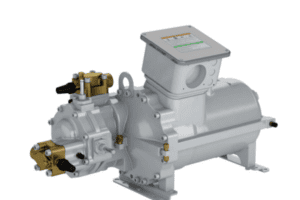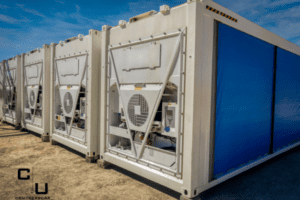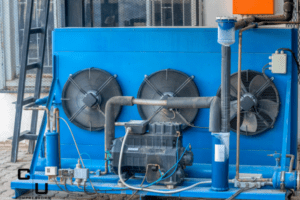All the parts of your commercial HVAC system rely on just one component: The compressor. It does the heavy mechanical work necessary to make refrigerant gas available to the rest of the system, no matter if you are cooling the indoor environment or heating it.
The compressor has been called the “heart” of a commercial HVAC configuration. Nothing else works as hard or does as much. In fact, the compressor can temporarily work harder to make up for inefficiencies elsewhere in the system, but the opposite isn’t true.
When the compressor fails, the rest of your setup comes to a stop.
Everyone knows this on paper, but it is much more challenging to see the many different ways in which a quality compressor positively affects every other component. Just like a strong heart means less work is expected to pump blood throughout the whole system, a compressor helps other parts work better.
Until recently, it hasn’t really been possible to measure this effect. In fact, the compressor has often gotten the blame as its own mechanical efficiency starts to wind down around the eighth year or so. These days, though, it is easier than ever to see the compressor’s contribution.
A Better Compressor Means Lower Overall Cost of Ownership
Keeping your compressor working like new will save you money in the long run. This remains true even when you factor in the cost of a regular maintenance schedule. Doing on-site repairs isn’t free, but it is much more budget-friendly than having to replace a chiller, air handler, condenser, or furnace.
A modern commercial compressor provides the service the rest of the HVAC needs to operate optimally. It takes less work to reach and maintain the temperature you want, so your system doesn’t cycle on and off too frequently. When the HVAC cycles on, the electricity drawn is significant – each saved cycle really makes a difference. That’s especially true when you consider the cumulative impact in months or years.
A Better Compressor Makes the Most of Modern Building Systems
A high-quality compressor makes it easier to leverage emerging technologies such as ultra-sophisticated smart thermostats and building management systems. With greater precision and granular control over the environment provided by a smart thermostat, you can further reduce HVAC on-time without losing sight of your interior climate goals. That’s another case of an effect that adds up over time.
The bigger and more complex your commercial HVAC system is, the more you stand to gain from the implementation of a building management system. Many commercial compressor manufacturers are directly involved in the design and deployment of these systems, which take preventive maintenance and monitoring to the next level – using artificial intelligence to flag problems before they emerge.
It’s already a wise idea to have spare compressor parts on hand so you can make appropriate field repairs while minimizing your HVAC system downtime. Building management equips you with superior support structures, enabling you to further limit that downtime and take care of it whenever is best for you.
Some newer commercial compressors close the loop with their own self-diagnostic programs that can alert you to issues early or patch into your overall building management network. While it’s standard best practice to stick with your existing make and model, newer commercial compressors offer some interesting strategic possibilities when you are building out an all-new HVAC system.
A Better Compressor Keeps the Rest of Your System in Service Longer
If your compressor is struggling, so is the rest of your system. Pressure levels throughout your HVAC can be too low or too high. This adds to the forces that every component of the system needs to deal with. It is far more likely that a system with an aging compressor will see problems up and down the line.
What many people do not realize is just how easy it can be to breathe new life into your commercial HVAC. You don’t need a compressor from an OEM-affiliated wholesaler and all the waiting and extra fees it entails. Instead, you can restore your system to peak efficiency at a fraction of the price.
A remanufactured commercial compressor is the key.
With a remanufactured commercial compressor, you can rest assured your compressor has undergone a complete re-engineering process before arriving at your facility. That includes full disassembly, cleaning, replacement of any parts that are below 100% efficiency, and testing. Ultimately, it also includes a full test under load, using simulated real-world conditions to ensure the unit is ready for service.
You get all the performance and environmental benefits of a new compressor unit with the same 8-10 year lifespan you would expect – not only at a lower expense but faster. When you want to elevate your HVAC’s efficiency, this is the best move.

